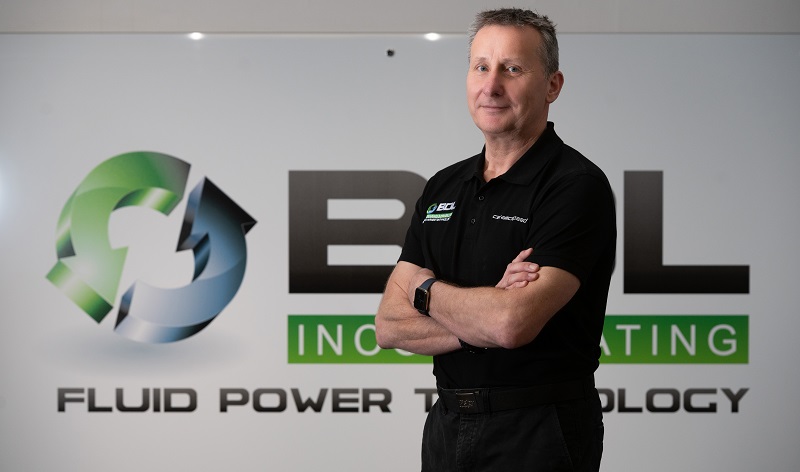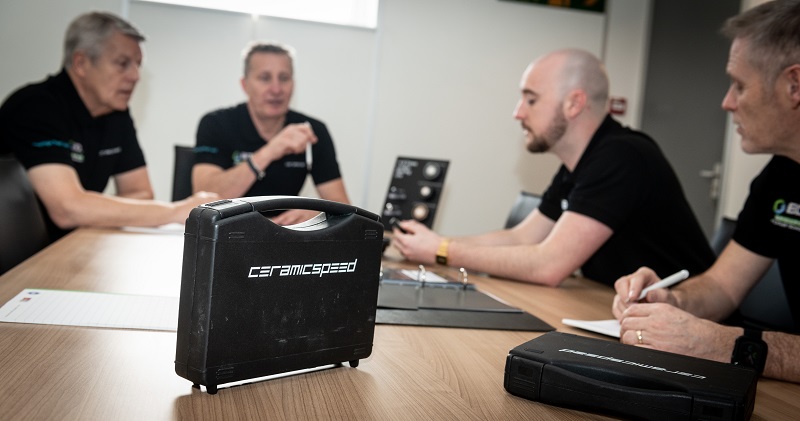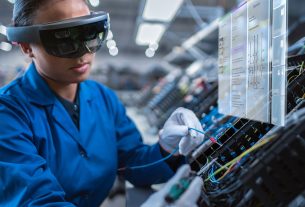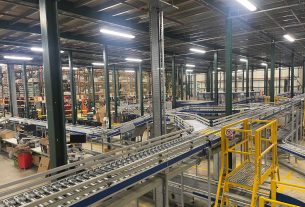As an integral part of many operations, the demand for stronger, more durable and longer-lasting bearings is on the rise – and, for many applications, conventional steel ball bearings can often not compare to their hybrid counterparts. Steve Bacon, Sales Director at Bearings and Drives Limited, shares an insight into the latest innovative technologies in operational efficiency to achieve new competitive advantages.
With a higher performance than traditional steel bearings, hybrid bearings are a combination of steel or stainless steel rings, used in conjunction with silicon nitride ceramic balls. As new technologies emerge, rolling elements (ceramic balls) of the highest quality, which on some occasions can take up to 60 days to manufacture, can be up to 58% lighter, four times smoother and have a 70% reduced thermal expansivity which can typically run at operating temperatures between 14-47 °C lower than standard steel bearings. A combination of those pioneering properties can heighten efficiency, ensure that the bearings are less prone to the effects of contamination and corrosion, and have a greater intolerance to heat.
If we look at CeramicSpeed bearings for example, they are also nonconductive, therefore making them ideal for use in electric motors, generators and other applications where passage of electrical currents must be avoided, offering significant advantages in terms of performance and durability over aluminum oxide coated bearings, which are frequently offered as an alternative in these applications.
Bespoke Solutions
Significantly, there is an opportunity for bearings to be tailored for a specific industrial application, with a combination of different ball bearings, rings, seals, cages and greases. With advancements in new material technology that make use of ceramics and coatings, the opportunities for continuous optimisation are extended – coating options could include a hard coat, corrocoat or black oxide and cages can be formed of either steel, polyamide PA66, brass or peek for example.
Lubrication is a vital part of every bearing’s optimal function, and this can also be considered to suit the application. Units can be offered with mineral or synthetic greases, or a solid lube polymer matrix, saturated with lubrication oil which can help to prevent contamination ingress and add protection in wash down environments. A specific grease could also prove useful in pharmaceutical and chemical applications, where it is critical that no liquid lubrication can be allowed to contaminate a product.
Benefits to the End User
While cost can often be a significant factor, the additional expense of hybrid bearings in particular is certainly not relevant to each and every bearing application. Many maintenance engineers will have experienced at least one application where repeated and frequent bearing failures have led to regular loss of production, increased maintenance costs, as well as probable damage to other machine components.
If bearings are failing on a regular basis, it is important to consider why. Could it be temperature issues, corrosion, contamination, grease problems or a combination of those factors? With new technological advancements, there could be a solution to aid the reduction of bearing failure downtime – whether it’s an off the shelf product, or a bearing designed to suit your very specific, individual needs.
Real Life Application
At Bearings and Drives alongside CeramicSpeed for instance, bespoke bearings can be sourced and hand built in 7-10 days. For example, when working with a local dairy, where due to frequent wash downs of the machinery with aggressive caustic cleaning agents, regular cam bearings were failing approximately every 2-3 weeks and so, it was imperative to find a solution.
As an integral part of the production line, with the bearings located at the heart of the machine, the failure resulted in the line being out of action for eight hours whilst it was stripped down to replace the failed bearings. By replacing the existing bearings with a CeramicSpeed Coracoated unit, with an FDA approved grease and ceramic balls, and by manufacturing 316 stainless stub shafts, the bearing life was increased to five months.
Despite the initial increased cost for the bearing and manufactured shafts, an ROI calculator indicated that savings over a 12 month period equated to in excess of a significant £250,000 per year, when all costs including loss of production are considered (based on eight bearings).
As new technologies emerge, not only can the lifespan of bearings be increased by an approximate factor of nine times, but the potential to increase production and make significant cost savings in reduced down time is unlocked.





